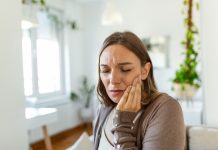
According to a new study from Sichuan University West China Hospital and elsewhere, socializing with others can help older people live longer.
The study, which involved more than 28,000 Chinese participants, found that socializing nearly every day had the biggest impact on longevity.
As of 2017, over 962 million people around the world were over the age of 60, and that number is expected to double by 2050.
As a result, there has been a lot of focus on the concept of “active” or “successful” aging, and one important aspect of this seems to be maintaining an active social life.
While there is already evidence suggesting that socializing can benefit one’s health, most of it comes from studies conducted in Western countries.
This new study sought to examine whether socializing frequency was linked to overall survival in older people living in China.
The researchers analyzed data from the Chinese Longitudinal Healthy Longevity Survey, an ongoing study that began in 1998 and focuses on older people living independently.
Information on socializing frequency was only collected starting in 2002, and the study focuses on five waves of data collected up to 2018-2019, involving a total of 28,563 participants with an average age of 89.
Participants were asked how often they engaged in social activities, ranging from almost every day to never.
Other factors such as sex, education level, marital status, household income, fruit and vegetable intake, lifestyle, and health status were also collected. Survival was tracked for an average of 5 years or until death.
Over the course of the study, 25,406 people reported not engaging in any social activities, while 1,379 did so occasionally, 693 did so at least once a month, 553 did so at least once a week, and 532 socialized nearly every day.
During the entire monitoring period, 21,161 participants died, 15,728 of whom died within the first 5 years.
The study found that socializing more frequently was associated with longer survival, with those who socialized almost every day having the greatest likelihood of living longer.
After the first 5 years, the standardized death rates were much lower among those who socialized more often.
A “threshold effect” was observed, suggesting that only socializing nearly every day was associated with significantly longer survival.
Time to death was delayed by 204% for those who socialized nearly every day compared to those who said they never socialized.
Factors associated with being more socially active included being male, younger, having a higher level of education, being married, living in a town/city or with relatives, and having good health.
It is important to note that this study only shows a correlation between socializing frequency and longevity and does not establish causation.
The researchers suggest that socializing may have health benefits, such as promoting healthy behaviors like physical activity and a better diet, and reducing the impact of chronic stressors.
Nonetheless, the results suggest that maintaining an active social life is an essential component of successful aging, and promoting social activity in older adults may help them live longer and healthier lives.
If you care about wellness, please read studies about popular supplement that may help reduce depression, and your immune system may fight against depression.
For more information about wellness, please see recent that Vitamin D could help reduce depression symptoms, and MIND diet could improve cognitive health in older people.
The study was conducted by Ziqiong Wang et al and published in the Journal of Epidemiology & Community Health.
Copyright © 2023 Knowridge Science Report. All rights reserved.



